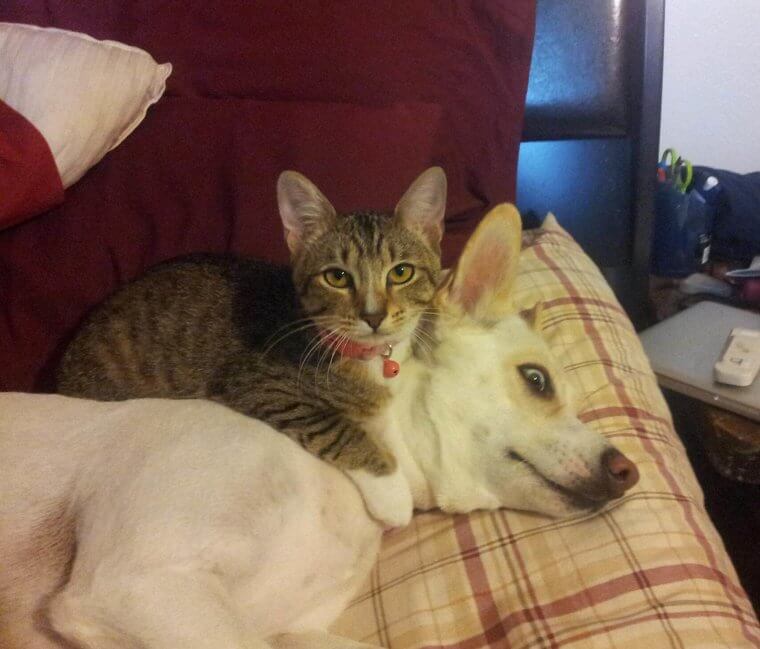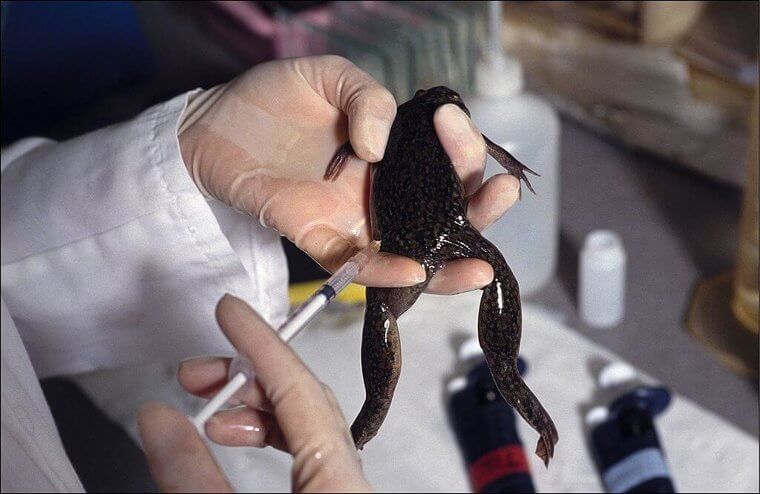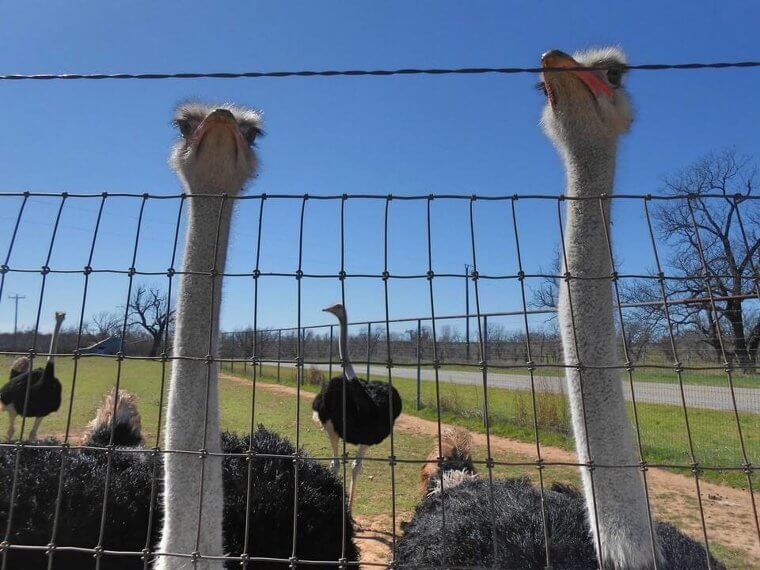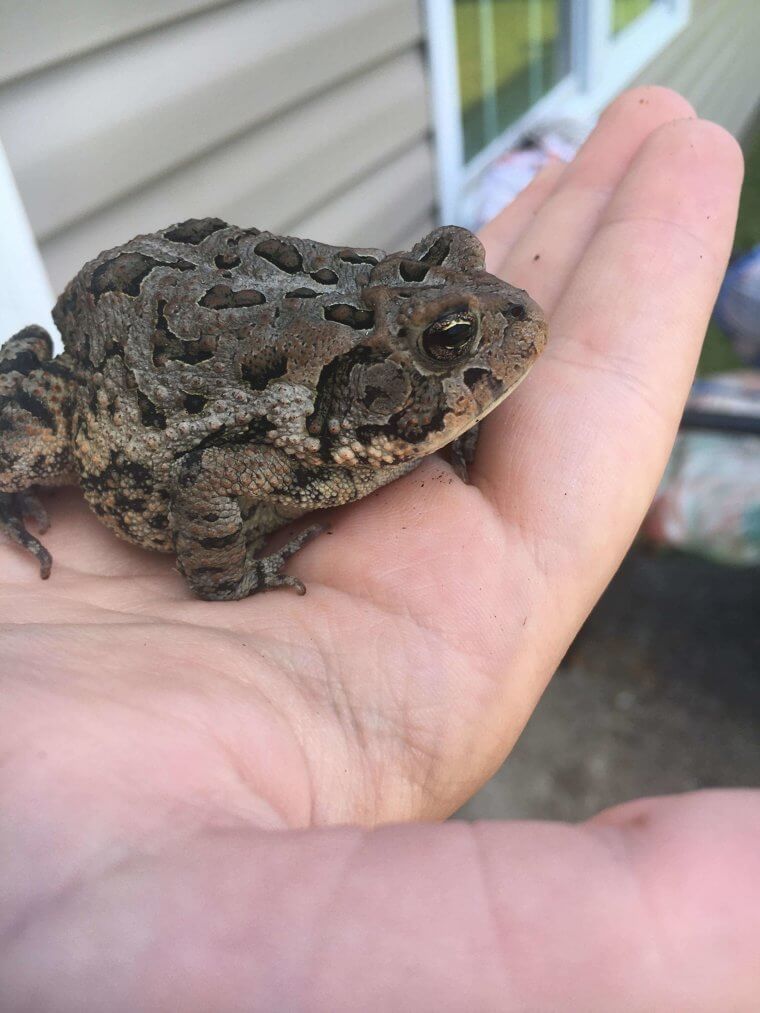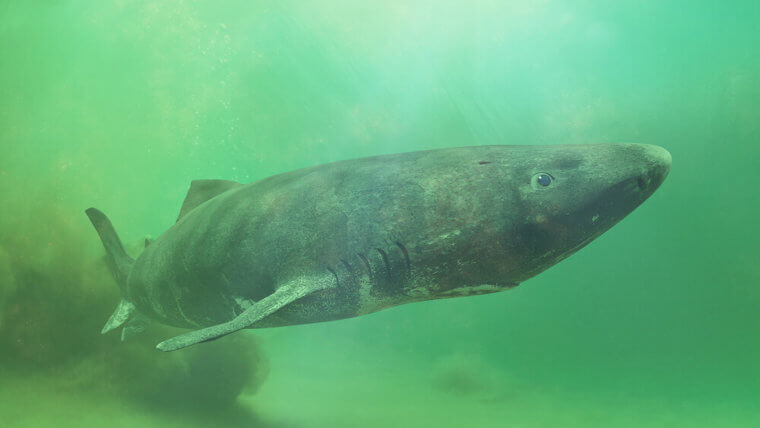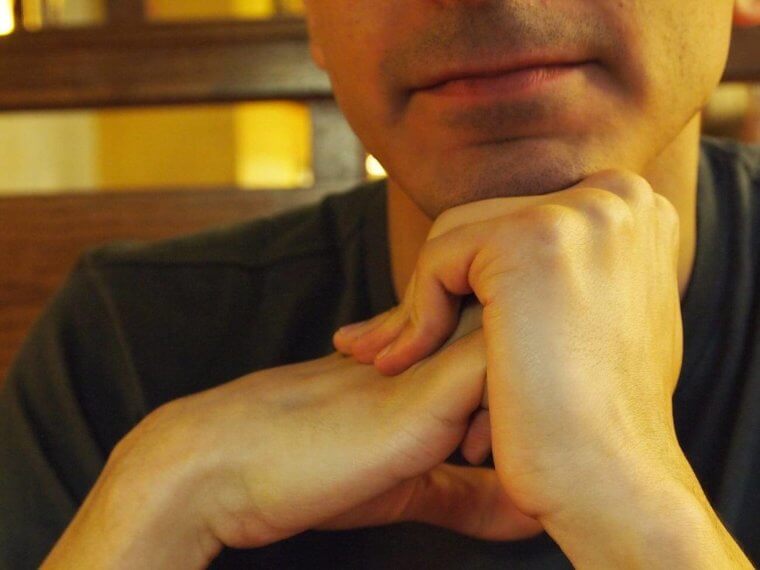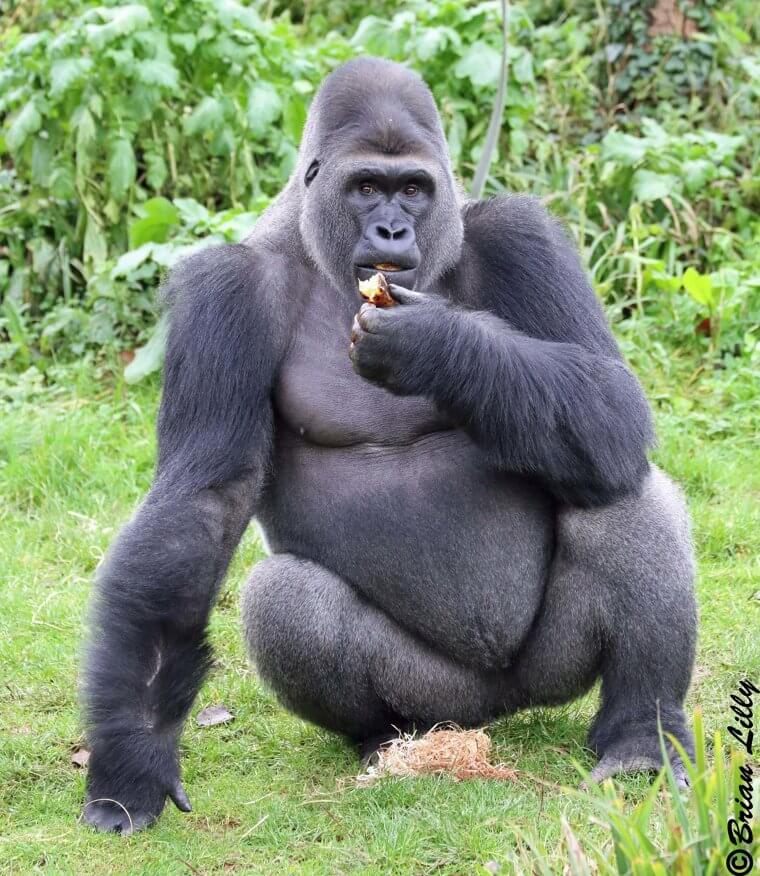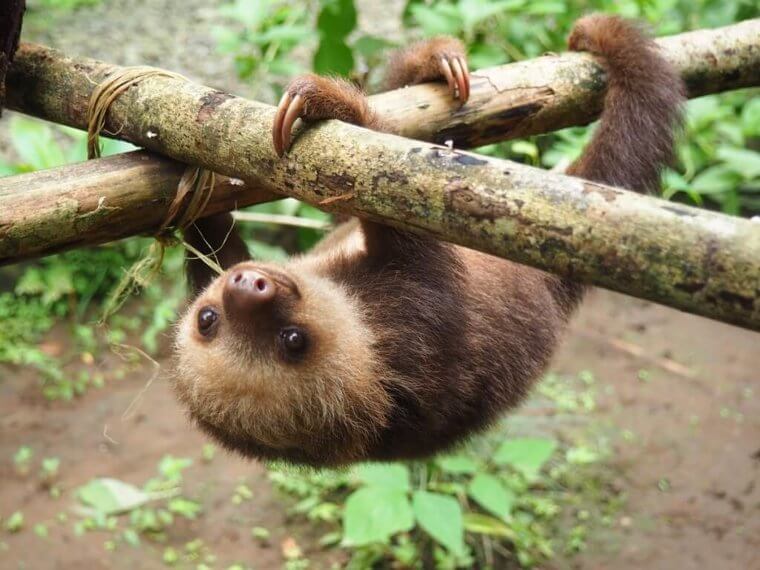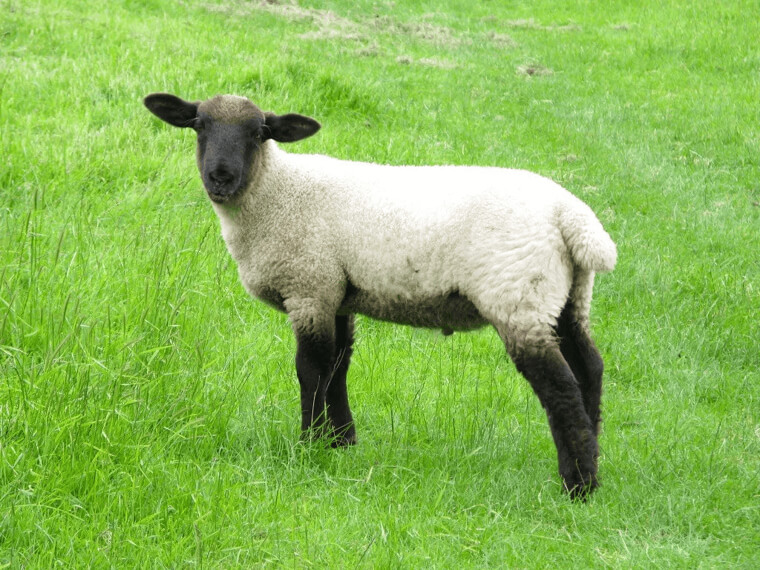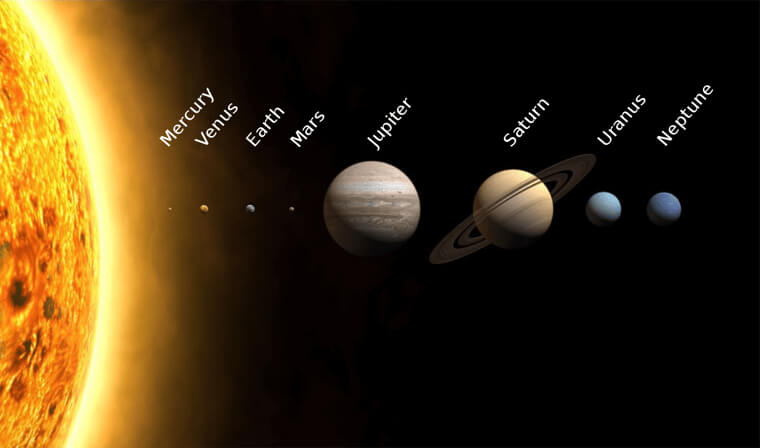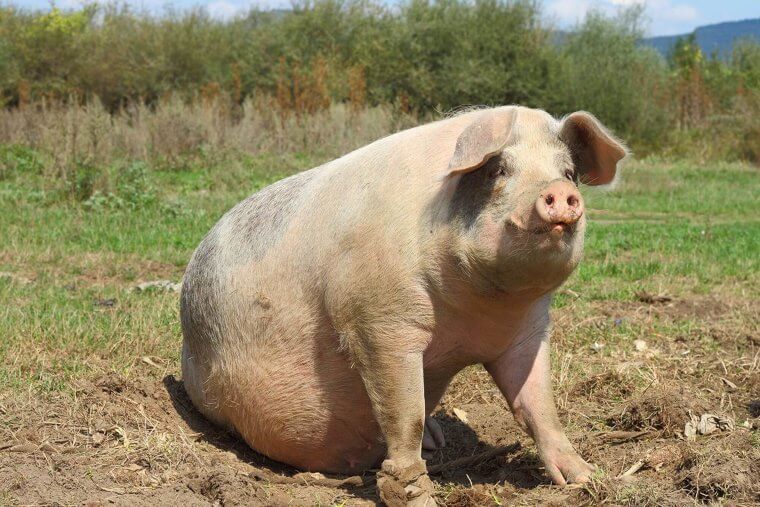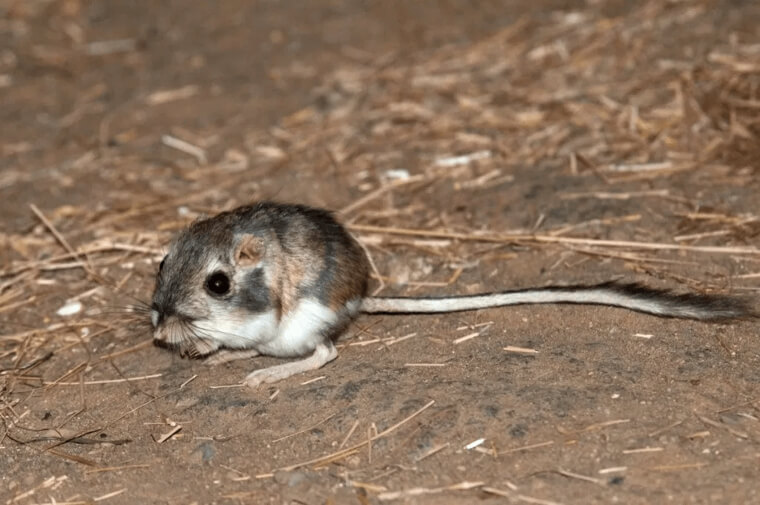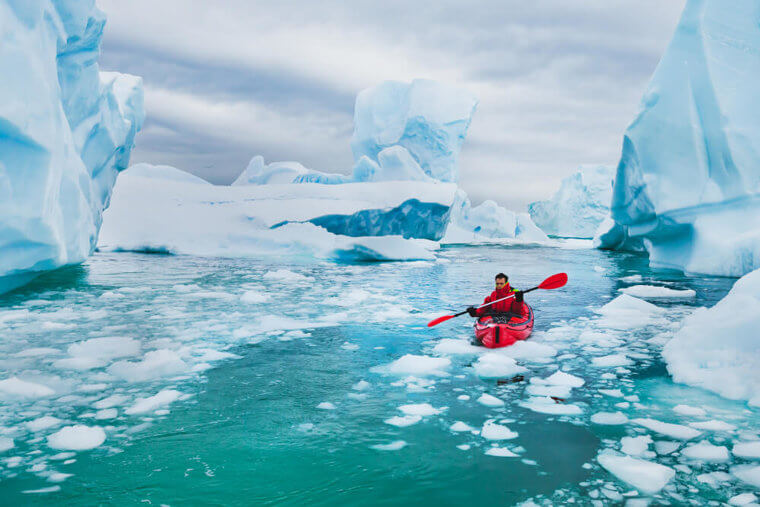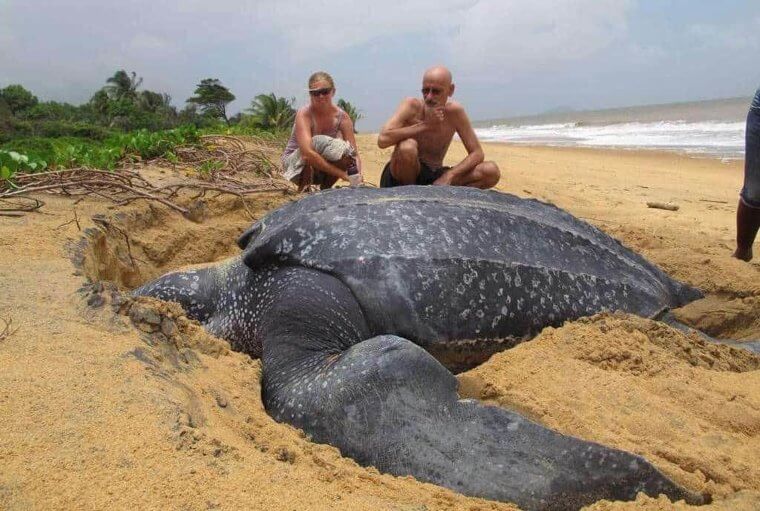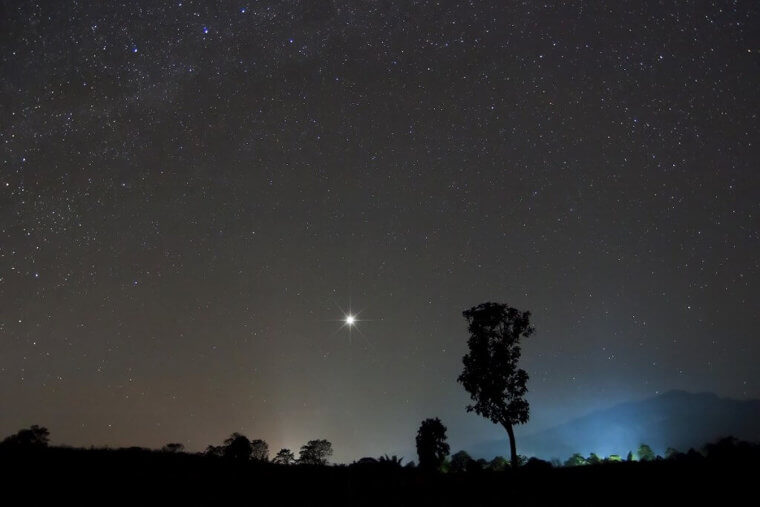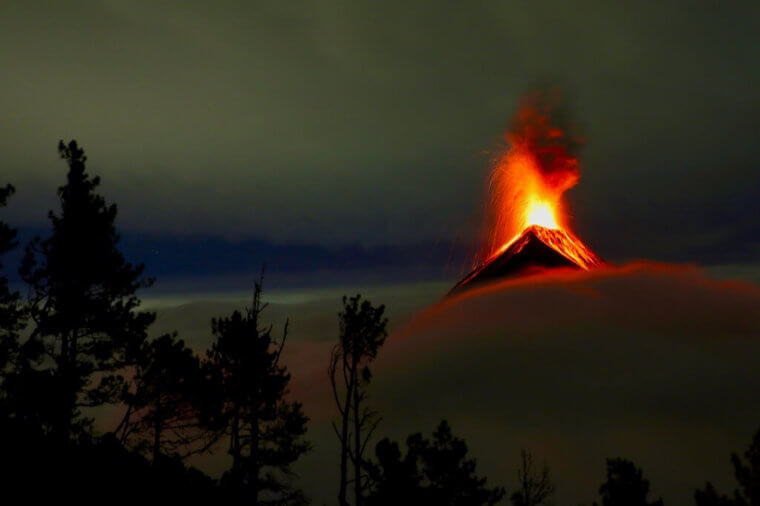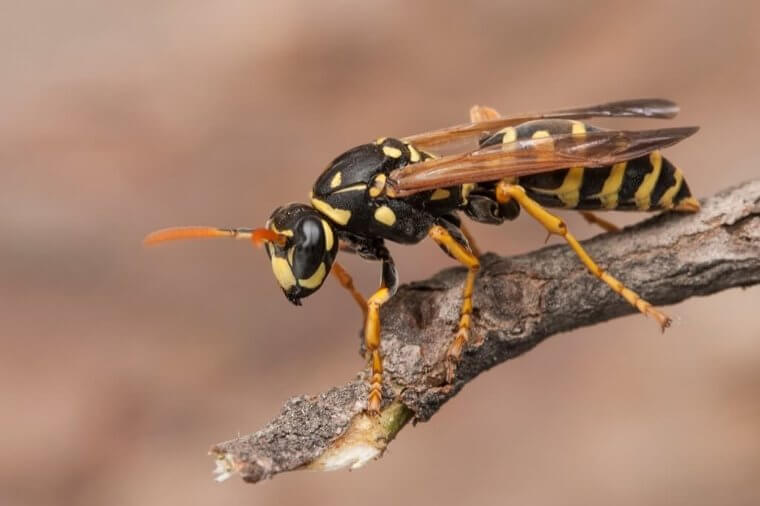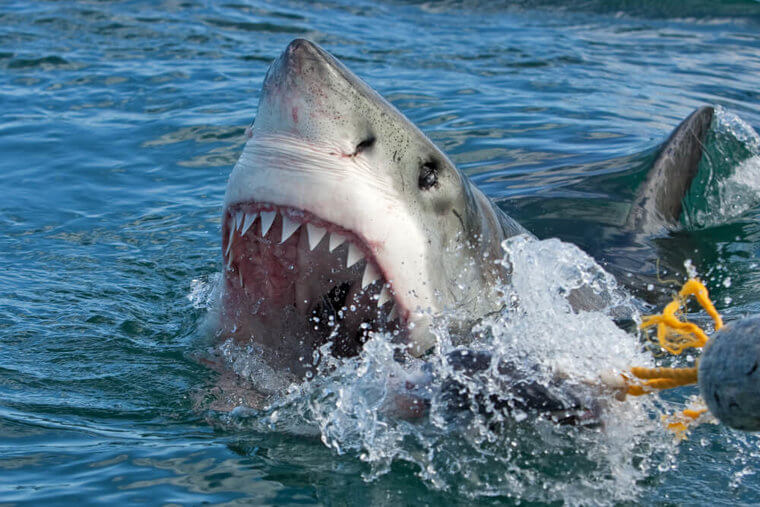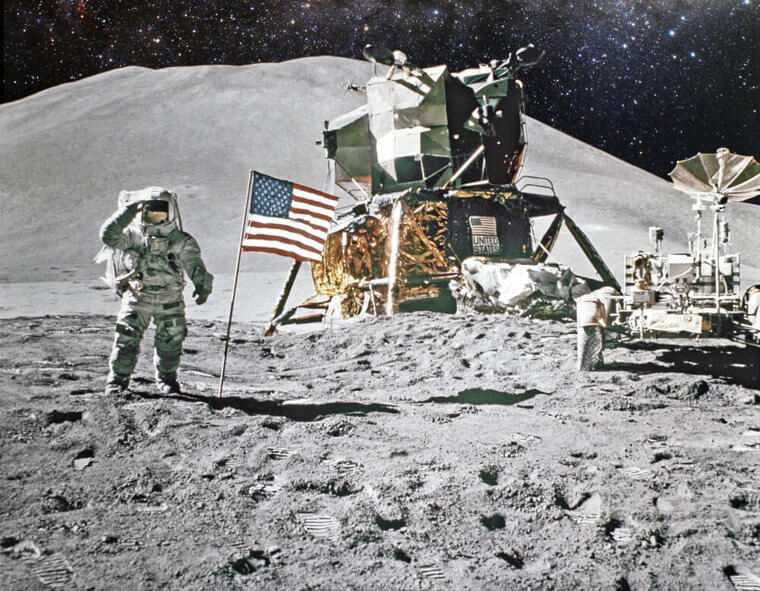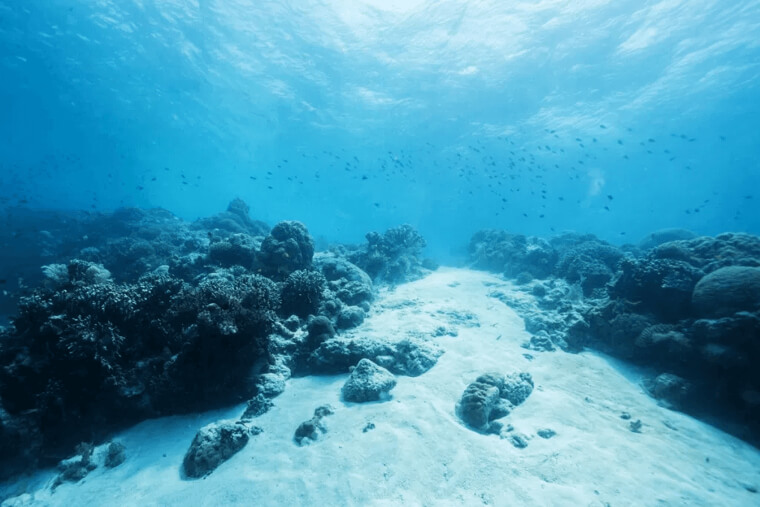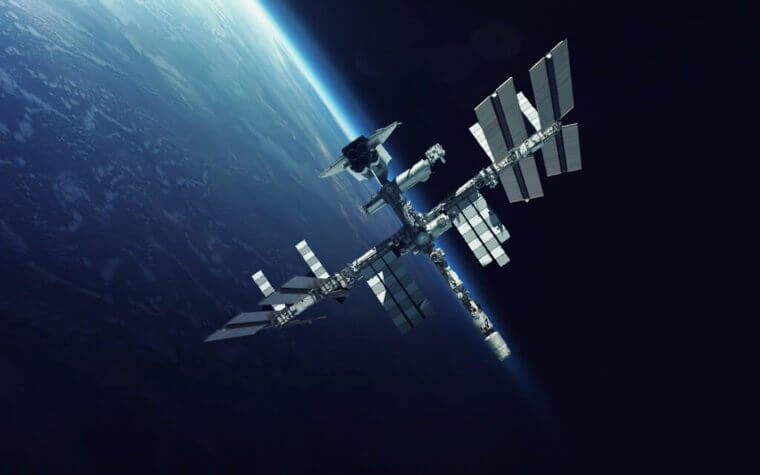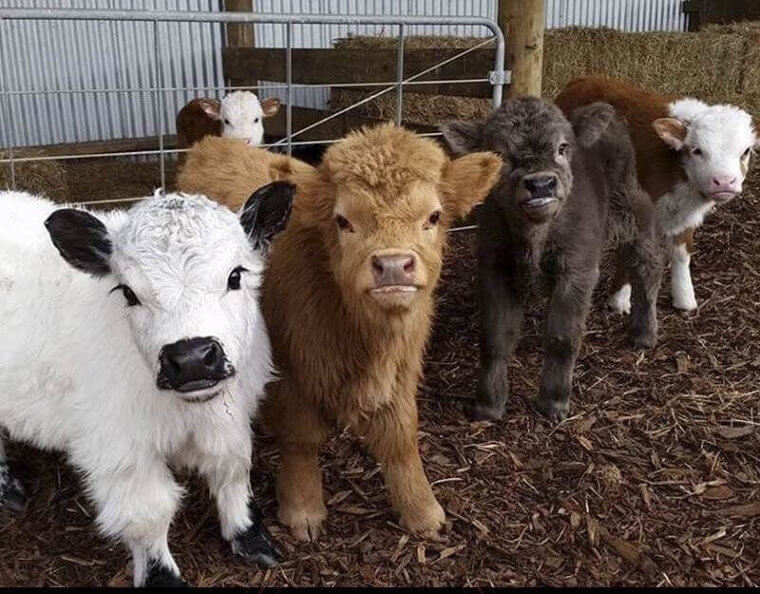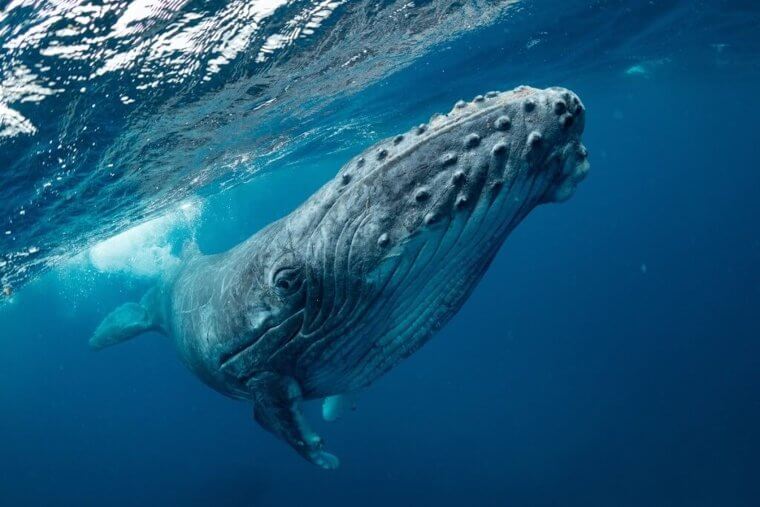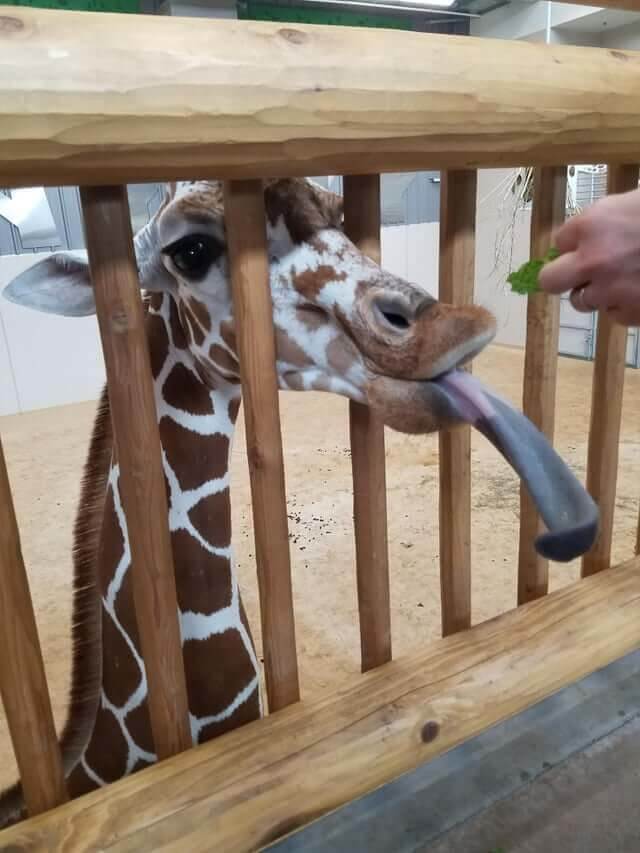Pets Can Have A Bigger Ecological Impact Than You Think
We all love our pets; there is no question about that. However, have you ever wondered what kind of environmental impact they have? Humans obviously have a significant effect on the environment and mainly in a negative way, but our pets surprisingly also play a part in that.
Our cute pups have the same ecological footprint as two Toyota Landcruisers, while the cats of the world have the same impact as a Volkswagon Golf. Even hamsters have an equivalent environmental impact of a plasma TV.
Human Saliva Has A Compound That Is Similar To A Strong Painkiller
While other people's saliva might seem gross, there might be something incredibly powerful about it. Researchers found that a compound in human saliva is six times more potent than morphine. Natural painkillers are rare, therefore scientists hope to harness them as a clinical treatment.
Although we aren't going to rely on people's spit the next time we feel some kind of pain, it could be a considerable advancement in modern medicine. The compound is called opiorphin, and it is supposed to prolong the defense against pain.
Early Pregnancy Tests Were Done Using Frogs
While it's hard to believe that the pregnancy tests we use today weren't invented that long ago, it is even harder to wrap our minds around the methods they used before we started peeing on a stick. Until the 1960s, pregnancy test methods weren't the most accurate.
Before the modern version, the only reliable test was injecting a woman's urine into a female African clawed frog. If the woman was pregnant, the frog would start ovulating within 12 hours because of their response to the hCG hormone.
If All The Lego Bricks Ever Manufactured Were Stacked Together They Would Go To Outer Space
Have you ever wondered what would happen if all the Legos in the world that were ever created were stacked together? While it hasn't been on our minds lately, it is interesting to think how tall that tower would be. Apparently, someone did the math and figured out where the building would reach.
The Lego tower would be ten times as high as the distance to the moon. If someone stacked them all together, no one would ever have to step on them and feel the mind-numbing pain again.
If Someone Dug A Hole Through The Center Of The Earth This Would Happen
Have you gone to the beach and thought you could "dig a hole to China?" While we learned about the earth's core in elementary school, we have always wondered what it would be like to dig a hole right through the center of the earth if it didn't have a hot firey core.
If it were possible to drill a hole right in the center of the planet and you jumped in it, it would take you 42 minutes and 12 seconds to get to the other side. That is one long free fall. However, where would you go once you got to the other side? Would you be thrown into space?
Ostriches Don't Actually Stick Their Heads In The Sand
You might have seen this happen in cartoons, but ostriches don't actually stick their heads in the ground when they are threatened. In fact, they don't bury their heads at all; it is just something made up for TV.
When ostriches do feel threatened, they flop on the ground and play dead. We aren't sure what could scare the largest living bird, but we would not want to come in contact with whatever that animal is.
Girls Have More Tastebuds Than Boys
There is always an argument of which sex is better, and this might solve the age-old question. A 2008 study found that girls have more tastebuds than boys, and they can recognize tastes better. Boys also have a higher attraction to sweeter food as children because girls have stronger tastes.
While this might not make women or men the superior sex, it's nice to have one small win for females, right? It was also found that women need a lot less training to be professional tasters because of their heightened senses.
King Henry III Got A Polar Bear As A Gift And Kept It In London
We are sure the royals of the world have received some truly bizarre gifts throughout history, but this one really blew our minds for many reasons. In 1251, King Henry III was given a polar bear from the King of Norway as a gift.
King Henry kept the polar bear in the Tower of London on a long chain so it could swim in the Thames River. This seems like blatant animal cruelty, but they didn't care about that back then. Also, we usually get candles as gifts, what kind of person gets a polar bear? Royals, clearly.
Holding A Toad Or Frog Doesn't Actually Give You Warts
One of the biggest misconceptions about toads and frogs is that you will get a wart if you hold one. They have been getting a bad reputation for a while, and they really don't deserve that. It is our job to set the record straight about these little guys.
However, shaking hands with someone who has a wart is one way to get one. The human papillomavirus is what gives people warts, and it is unique to humans. The virus causes an excess amount of keratin to develop on top of the skin, a wart.
Greenland Sharks Don't Reach Sexual Maturity Until They're 150
Greenland sharks are some of the most interesting sharks in the world, and they tend to live very long lives. The average lifespan for a Greenland shark is around 250 years, and it's possible for them to live up to 500 years.
Because they live such long lives, they don't reach sexual maturity until they are 150. As they are swimming around the ocean for all those years, they mature slowly to accommodate for their long lifespans.
Dr. Corneliu Giurgea Coined The Term For An Industry That Is Now Worth $2 Billion
You have probably heard of things like "limitless pills" or supplements such as Cogniflex. These pills are supposed to enhance brain function, improve mental clarity, and keep you focused. Today this industry is worth $2 billion worldwide, and the term was only invented in 1972.
Dr. Corneliu Giurgea, a Romanian doctor, coined the term "nootropics," and we are sure he didn't know what the industry would turn into. His original idea was to create a drug that would enhance memory and learning, but today it is an umbrella term that includes everything from prescription drugs to dietary supplements.
The Caffeine Industry Is On The Downturn Because Of This Competitor
While it seems like everyone and their mother is drinking coffee these days, you might be surprised to find out the caffeine industry has been on the downturn for the past decade. Each year the demand reduces by .7 percent because there are other ways to wake yourself up.
From energy drinks to brain pills, people are resorting to other forms of stimulants, which have not been suitable for the coffee industry. However, we can't see coffee going out of style or business anytime soon. We wouldn't know what to do with ourselves if that happened.
If You Drove Your Car Straight Up, You Would Make It To Space In A Decent Amount Of Time
Although flying cars don't exist yet, it is a possibility in the future, and you have to wonder how long it would take to get to outer space if cars could fly. If there was no traffic and you just drove straight up, you could get to space in just over an hour.
Astronomer Fred Hoyle was the first to point this out and calculated it based on a car traveling at 60 miles per hour. It might take a little longer to get to the moon because it is 250,000 miles away from earth, but the real problem is the lack of parking... and air for your lungs, of course.
Shaking Hands Was Dangerous Even Before 2020
While we have basically stopped shaking hands to prevent the spread of coronavirus, the dangers of shaking hands have existed long before the pandemic. While it is not going to kill you to shake someone's hand, there is the possibility of catching a cold or flu.
When you shake hands with someone, you are passing more germs than you would by kissing them. It is insane how many germs our hands have on them, yet this is how we strengthen our immune systems.
Cracking Your Knuckles Is Not A Bad Thing
There are many myths surrounding cracking your knuckles, from the age-old arthritis myth to apparently making your knuckles more prominent. There is actually nothing harmful about cracking your knuckles besides bothering people around you with the sound.
The main causes of arthritis are obesity, genetics, age, and injury. Therefore, you can crack away in peace unless someone tells you to stop because of the sound. There is nothing beneficial or harmful about the act.
Gorillas And Potatoes Have Something In Common
While you might think it's strange to group gorillas and potatoes into the same category, the two have something unique in common. Humans have 46 chromosomes, but gorillas and potatoes have 48. That is where the similarities end, but they can still be lumped into one category together.
We can just imagine a gorilla eating a potato, knowing they share at least one thing in common. It might savor the potato a little longer if it knew that they shared that bond.
Every Mammal Has The Same Number Of Neck Vertebrae, Except For Two
It's probably hard to focus on the fact when a cute sloth is staring at you, but it might be interesting to know two-toed sloths and manatees are the only mammals with a different number of neck vertebrae. Whether it's a giraffe, mouse, or human, we all have seven vertebrae.
The sloth and manatee have eight or nine vertebrae, giving them an almost 360-degree view of their environment. It is a powerful defense for one of nature's slowest moving mammals. They adapted over time to stay safe from predators.
People Used To Think That Lambs Grew On Trees
Humans have said many dumb things in their lives, but this one might top the list. The "vegetable lamb" was thought to be an animal that grew from the Lamb Tree in the region of Tartary, an area that eventually became Europe and Central Asia.
According to medieval texts, the plant came in two different varieties, and one grew newborn lambs inside of pods, while the other grew a lamb that was attached to the stem by its belly button. The lambs were apparently hunted (or gathered in this case) for their meat and skin.
If The Sun Was The Size Of A Beachball What Would The Other Planets Look Like?
While it's hard to imagine the planets in their natural size, there is a way to visualize them in a scale size that puts things into perspective. Let's say the sun is the size of a basketball, then Jupiter would be the size of a golf ball and Earth would be the size of a small pea.
It is hard to wrap our minds around the sheer size of the sun because it just looks like a small firey ball in the sky. However, the sun is 110 times wider than the earth, and 1.3 million earths could fit inside the sun. Hopefully, that puts it into a better perspective for you.
There Are Pigs That Weigh The Same Amount As Polar Bears
Besides the mini pigs we see on Instagram, most pigs are relatively large. An average pig weighs around 285 pounds; however, in the southern region of China, a farm has a pig the size of a polar bear. It weighs a whopping 1,102 pounds.
Sadly, the massive pig is part of a herd being bred to become giant swine to be sold for meat. Unfortunately, these pigs go for high prices, so they are in high demand. We don't know what they did to make it so large, but it must have to eat a lot.
Kangaroo Mice Never Need To Drink Water
Despite being named after the Australian mammal that can go up against even the world's best boxer, the kangaroo mouse lives in the Nevada desert. Because it resides in such a dry area, it learned to adapt by getting all the hydration it needs from the seeds it eats.
This means the kangaroo mouse never drinks water. As someone who always forgets to stay hydrated, this little guy is our superhero. If only we could get a day's worth of hydration without having to remember to drink water.
The Average Cumulus Cloud Is The Same Weight As 100 Elephants
When you look up at the clouds in the sky, they seem weightless, like cotton candy or feathers. That is actually incorrect because clouds are very heavy. Why else would they be able to cause so much turbulence for planes that fly through them?
An average-sized cumulus cloud weighs around the same amount as 100 African elephants. The water and ice particles that make up cumulus clouds weigh around 550 tons. Meanwhile, a thunderstorm cloud weighs the same as 200,000 elephants.
A Single Bolt Of Lightning Has Enough Energy to Cook 100,000 Pieces Of Toast
We all know that lightning is powerful, and very dangerous. A single bolt of lightning can cook around 100,000 pieces of toast because there are 10 billion joules of energy in one bolt and a piece of toast needs 100,000 to cook.
The next time you are hosting a brunch for 100,000 of your closest friends, you might want to wait for a lightning storm to cook your toast in one shot. We might be joking, but that would be a huge time saver if it were at all safe.
Spending A Month In Antarctica Can Shrink Your Brain
If you ever take a trip to Antarctica by chance, be sure to do as much socializing as possible with the limited human life down there. According to a New England Journal of Medicine study, if you don't keep your mind active, isolation can do strange things to your brain.
Brain imaging in eight polar explorers before and after 14 months of isolation found that the volume of the part of the brain that makes new memories was lower than the control group. They believed it was because of the long periods of isolation.
More People Drown In The Desert Than Die Of Thirst
One would assume that people die of thirst in the desert because there is no water, but that is incorrect. Although precipitation in the desert is infrequent, when it does rain, it comes suddenly and very heavy. Since the deserts don't have drainage systems in place, the rain has nowhere to go.
The dry, clay-like soil can't absorb all the water fast enough, and it becomes excessive. This also results in quicksand and sandstorms, which can lead to drowning by sand. That is the last way we would want to go.
If You Fold A Piece Of Paper 42 Times It Would Be Thick Enough To Reach The Moon
You probably think we are out of our minds for thinking a piece of paper could be thick enough to reach the moon, but it is possible. According to Gizmodo, all it takes to verify this is some simple math. If you fold a piece of paper in half, it doubles in thickness.
When you repeat the process, it continues to get thicker. With that type of exponential growth, it would take 23 folds for a .1 millimeter piece of paper to be one kilometer thick, and 30 folds would reach outer space. However, the world record for paper folds is only 12.
The Largest Turtle That Ever Lived Weighed Over A Ton
There are many different species of turtles, and the largest ever recorded was a leatherback sea turtle that washed ashore in the United Kingdom in 1988. It had drowned after it was caught in a fishing line and sadly couldn't set itself free.
The turtle was about 100 years old when it washed ashore. It was nine feet long and weighed around 2,000 pounds. That seems more like a dinosaur than a sea turtle. Sadly, this gentle giant was senselessly killed by someone who was probably not trying to hurt it.
The Human Heart Beats More Than 2.5 Billion Times In The Average Life
While your heart can beat faster when you are excited and slower when you are relaxed, but it tends to keep the same general pace. Most human hearts beat 60 to 70 times per minute and 100,000 times per day. That's about 35 million times a year.
If you take the average lifespan of a human, your heart would beat around 2.5 billion times during that lifetime. It's hard to imagine that our hearts work that much, but they do keep us alive, so it makes sense.
Stars Don't Actually Twinkle
"Twinkle, twinkle little star" is actually a very misleading nursery rhyme. The song led us to believe that the stars in the sky sparkle, when in fact, they don't. The flashing that we see in the sky is a "space mirage."
The light that emanates from stars is steady and constant, but the earth's atmosphere interferes with that, which is why we see a twinkle. They might want to change the nursery rhyme to "Twinkle, twinkle little star, how I wonder what space mirage you are."
1816 Was Known As The Year With No Summer
In April 1815, Mount Tambora in Indonesia experienced the most significant volcanic eruption in human history. The event, which lasted almost two weeks, blew tons of dust, ash, and sulfur dioxide into the earth's atmosphere.
The blanket of dust and ash shielded the planet from the sun, which led to a year without summer. Some parts of New England saw heavy snowfall in June and a frost set in around July and August.
Wasps Are More Likely To Sting You At The End Of The Summer
Wasps are terrifying, and their sting matches the level of fear they instill in people. However, the most common time to get stung is at the end of the summer, so beware. Towards the end of the summer, when wasps are done providing the queen and her offspring, they get restless.
They leave the hive to search for energizing sugary drinks, which makes them drunk in a sense. Because there are so many out and about, there are more around to sting you, which is why you should be aware during the end of the hot season.
Human Teeth Are Just As Strong As Shark Teeth
Sharks are easily the most feared fish in the ocean with their razor-sharp teeth and manhunting skills. Their bite force is incredible, but what some people don't know is that human teeth are just as powerful.
A study by the Journal of Structural Biology found that a human wisdom tooth is just as hard as the enamel coating a shark's tooth. Both are made of mineral crystals bound together with proteins which prevent teeth from shattering.
Cleopatra Lived Closer To The Moon Landing Than The Construction Of The Pyramids
Cleopatra was easily one of the most famous rulers in Egypt, but she actually lived closer to the moon landing than she did to the construction of the Great Pyramid of Giza. Cleopatra died in 30 BC, while the pyramid was built in 2,560 BC.
That timeline means the pyramid was completed 2,500 years before the queen's time. Meanwhile, if she died in 30 BC, the moon landing happened was 2,000 years after she died.
Radioactive Particles From The Cold War Were Found In The Deepest Part Of The Ocean
We are well aware of the destructive powers of nuclear bombs, and now scientists have discovered the long-term effects of nuclear warfare. In a 2019 study, researchers revealed that radioactive particles that originated from atomic bomb tests between the '40s and '60s were detected in the Marina Trench.
During the Cold War, the United States and the Soviet Union detonated nearly 500 nuclear bombs, 379 of which exploded in the atmosphere. These tests increased the amount of carbon-14 in our air, causing the Test Ban Treaty of 1963 to be created.
Yawning Is Biological Air Conditioning
Originally it was thought to be a social cue, but a series of experiments suggested that yawning happens for a different bodily reason. A research study found that yawning might be the way the brain cools itself down.
The stretching of the jaw increases blood flow to the neck, face, and head, and the deep breath forces a downward flow of spinal fluid and blood from the brain. The air breathed then cools the blood down, and makes the brain relax.
When Pieces Of Metal Touch In Space They Are Stuck Together Forever
If you live on Earth, which most of you probably do, and you want to attach to pieces of metal together, you'll need some intense heat to attach them. However, in space, two pieces of metal will be permanently stuck together if they touch.
This is due to something called "cold welding." It is a freezing phenomenon discovered in the '60s when astronauts couldn't close a hatch after a spacewalk because the door's metal fused together when exposed to the elements.
Cows Moo In Regional Accents
While it might sound funny to think of animals having accents like humans, cows actually have regional accents when they moo. This was first detected by dairy farmers who noticed their cows have different moos when they came from different places.
Can you imagine hearing cows moo in a southern accent or a British accent? They would sound hilarious. We wonder if they can understand each other even though they have different ways of mooing.
Humans Give Off A Tiny Amount Of Light That Glows
We have all heard of the pregnancy glow before, but we never knew every human had it too. Being a human that glows sounds like a superpower, but it turns out that everybody emits light like a shiny diamond. However, we aren't able to see this light because it is too low to detect with the naked eye.
This glow is the result of highly reactive free radicals produced through cell respiration interacting with fats and proteins. This reacts with a chemical in our body and produces a tiny amount of light.
Whales Can Swallow Half A Million Calories In A Single Mouthful
Whales have giant mouths, and a humpback whale can hold 5,000 gallons of water in its mouth at once. According to a 2011 study by the Journal of Experimental Biology, they can take in 457,000 calories in a single mouthful.
Whales take in large mouthfuls of water and filter out the krill and other small ocean creatures that consume. They are like the Michael Phelps' of the ocean, as he has been known to eat 12,000 calories a day while training.
Giraffe Tongues Are Two Feet Long
Giraffes are marvelous and adorable creatures with their awkwardly long necks and big baby eyes. One thing that is truly bizarre about them is their long purple tongues that can grow up to almost two feet, and their tongues are used for a very specific purpose.
When they are reaching for leaves at the top of the tree, they use their tongues to get the tastiest ones, and it helps them navigate around the spikes of the Vachellia and Senegalia plants. Their tongues also have a tough layer to protect them from the thorns.

